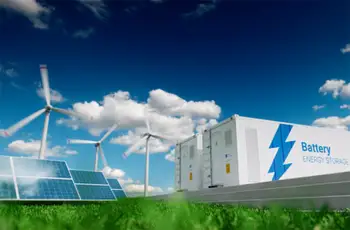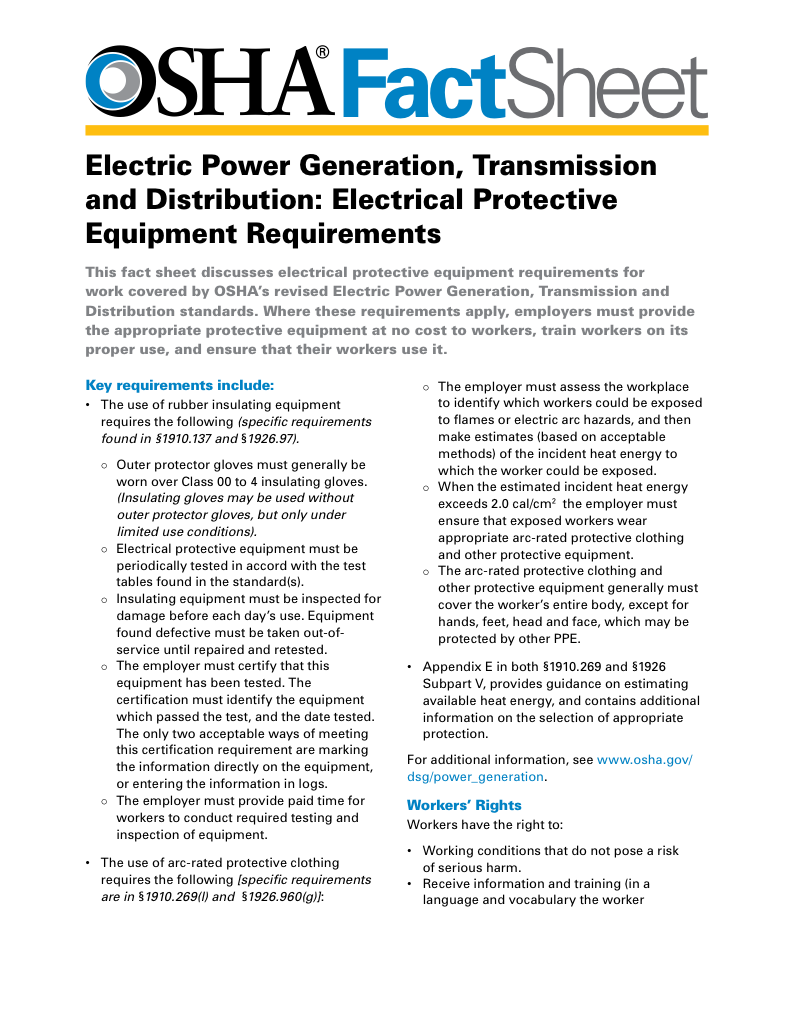Capacitor Energy Storage Formula
By R.W. Hurst, Editor
Energy Storage Systems Course
Our customized live online or in‑person group training can be delivered to your staff at your location.

- Live Online
- 12 hours Instructor-led
- Group Training Available
Download Our OSHA 3875 Fact Sheet – Electrical PPE for Power Industry Workers

- Follow rules for rubber gloves, arc-rated PPE, and inspection procedures
- Learn employer obligations for testing, certification, and training
- Protect workers from arc flash and electrical shock injuries
The capacitor energy storage formula explains how capacitors store electrical energy using voltage and capacitance. This principle is crucial in power electronics, circuits, and renewable energy systems for ensuring stability, providing backup, and promoting efficient energy use.
What is a Capacitor Energy Storage Formula?
The capacitor energy storage formula calculates the energy held in a capacitor based on its capacitance and applied voltage.
✅ Determines stored energy in joules using capacitance and voltage
✅ Essential for analyzing circuits, power electronics, and storage systems
✅ Supports renewable integration, efficiency, and backup energy design
Energy Storage Systems Training
Capacitors are vital components in electrical circuits because they can store and release energy rapidly. The fundamental relationship shows that the amount of charge and energy a capacitor can hold depends directly on its capacitance and the applied voltage. When discharged, capacitors can deliver significant bursts of electricity, sometimes dangerously so if handled improperly. Understanding how capacitors store energy provides context for broader energy storage solutions that stabilize modern power systems.
The Formula for Charge Storage by Capacitor
The charge a capacitor stores is directly proportional to its voltage and capacitance:
Q = C × V
Where Q is charge in coulombs, C is capacitance in farads, and V is voltage in volts.
Derivation of the Energy Storage Formula
The energy stored in a capacitor can be derived by considering the work needed to move charge:
W = ∫₀ᴼᑫ (q/C) dq = Q² / 2C
Since Q = CV, this becomes:
E = ½ C V²
This is the standard capacitor energy storage formula, but it can also be expressed as:
E = Q² / 2C or E = ½ QV
These alternate forms highlight how energy depends on capacitance, charge, or voltage. The amount of electricity stored in a capacitor depends on the charge accumulated on its plates and the voltage applied across them. As electric charges accumulate, the potential difference increases, directly affecting the electricity stored in the electric field. To calculate this, engineers first determine the capacitance of the device, as larger capacitance values allow for more stored charges at a given voltage. This relationship explains why capacitors are essential in circuits requiring quick bursts of electricity, efficient charge storage, and reliable power delivery.
Sign Up for Electricity Forum’s Energy Storage Newsletter
Stay informed with our FREE Energy Storage Newsletter — get the latest news, breakthrough technologies, and expert insights, delivered straight to your inbox.
Energy Density and Electric Field Perspective
From field theory, the energy per unit volume stored between the plates is given by:
u = ½ ε E²
Where ε is the permittivity of the dielectric and E is the electric field strength. For a parallel-plate capacitor, this relationship between energy storage and plate area, spacing, and dielectric properties illustrates how design directly affects performance.
Practical Constraints and Losses
While the formula suggests infinite storage with higher voltage or capacitance, real capacitors face limits:
-
Dielectric breakdown voltage caps the maximum usable voltage.
-
Leakage currents cause gradual self-discharge.
-
Equivalent series resistance (ESR) produces internal heating and losses.
-
In supercapacitors, only part of the power (between Vmax² and Vmin²) is practically usable.
While batteries dominate the market, battery energy storage systems differ from capacitors in powerdensity, response time, and lifecycle.
Worked Example
Suppose C = 50 µF and V = 100 V.
E = ½ × 50 × 10⁻⁶ × (100)²
E = 0.25 joules
This shows how small capacitors store modest amounts of electricity, while large supercapacitors can store thousands of joules.
The Stored Energy of a Capacitor
When a capacitor is charged, electrical energy is held in the electric field between its plates. Upon discharge, this power is released instantly, which explains both its usefulness in circuits and its potential hazards. Stored energy scales with capacitance and increases quadratically with voltage. Large-scale projects often integrate capacitor technology with other options, such as compressed air energy storage, to provide grid reliability.
Applications and Comparisons
Capacitor energy storage is used in:
-
Power electronics for smoothing voltage and providing surge power
-
Renewable systems as a buffer for stability and backup
-
High-performance applications like pulsed lasers and medical defibrillators
Compared with batteries, capacitors store less epower but can charge and discharge much faster. Supercapacitors extend this principle, bridging the gap between traditional capacitors and chemical storage. In renewable integration, comparing capacitor energy to solar energy storage highlights the advantages of speed and efficiency versus long-term supply.
Capacitance and Energy Storage Capability
A capacitor with greater capacitance can hold more charge and therefore more electricity. Designers utilize this principle to size capacitors according to specific circuit requirements. As part of a balanced grid, capacitor storage works alongside solutions like thermal energy storage to manage demand and improve overall system stability.
Voltage and Energy Storage Capacity
Voltage has an even stronger effect. Doubling the voltage quadruples the stored energy due to the squared term in the formula, making voltage ratings as important as capacitance values in the design process. Growth in utility-scale energy storage shows how diverse technologies, including capacitors, are transforming how electricity is stored and delivered.
Frequently Asked Questions
What is the formula for charge storage by a capacitor?
Q = C × V, where Q is charge in coulombs, C is capacitance in farads, and V is voltage in volts.
How do you calculate the energy stored in a capacitor?
E = ½ C V², where E is electricity in joules, C is capacitance in farads, and V is voltage in volts.
What is the stored energy of a capacitor?
It is the electricity held in the electric field between the plates of the capacitor.
How does capacitance affect energy storage?
Higher capacitance means more power can be stored, since electricity is directly proportional to capacitance.
How does voltage affect energy storage?
Power increases with the square of voltage, making voltage rating critical to a capacitor’s storage capacity.
Related Articles








